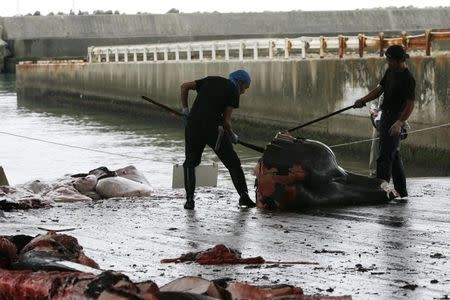Japan says hopes to resume whaling later this year, but hurdles remain

By Elaine Lies TOKYO (Reuters) - Japan hopes to resume whale hunting in the Antarctic later this year, a top official said on Friday, despite a finding by the International Whaling Commission (IWC) that Tokyo had yet to prove the kill was scientifically justified. In April, an IWC panel of experts said it opposed Japan's proposal for its Antarctic whaling programme in the Southern Ocean because it did not demonstrate a need for "lethal sampling," prompting Japan to submit additional information. The IWC's Scientific Committee said in a report released on Friday that Japan's additional material had failed to clear all doubts about whether "lethally obtained data" would contribute to management and conservation of whales, calling on Japan to provide even more analysis. Last year, the International Court of Justice ruled that Japan's decades-old whale hunt in the Southern Ocean should stop, prompting Tokyo to cancel the bulk of its whaling for the 2014/2015 season. Officials said then that whaling would resume in the 2015/2016 season, under a revised plan. "There's no change in our stance on resuming whaling," said Joji Morishita, Japan's commissioner to the IWC, at a news conference. Asked if he thought Japan's whaling fleet would be able to depart at the start of winter as usual, or within the year at all, he declined to provide a firm answer. "We of course intend to resume whaling again this year - but we still have more work to do." Japan has long maintained that most whale species are not endangered and that eating whale is part of its food culture. Its most recent whaling plan proposed to take 333 minke whales in the Antarctic. Officials, including Prime Minister Shinzo Abe - who hails from an area with a long tradition of whaling - have said that their ultimate goal is the resumption of commercial whaling. Japan began what it calls scientific whaling in 1987, a year after an international whaling moratorium took effect. It runs a separate whaling programme in the Northern Pacific that was unaffected by the international court ruling and began earlier this month. (Reporting by Elaine Lies; Editing by Jeremy Laurence)

